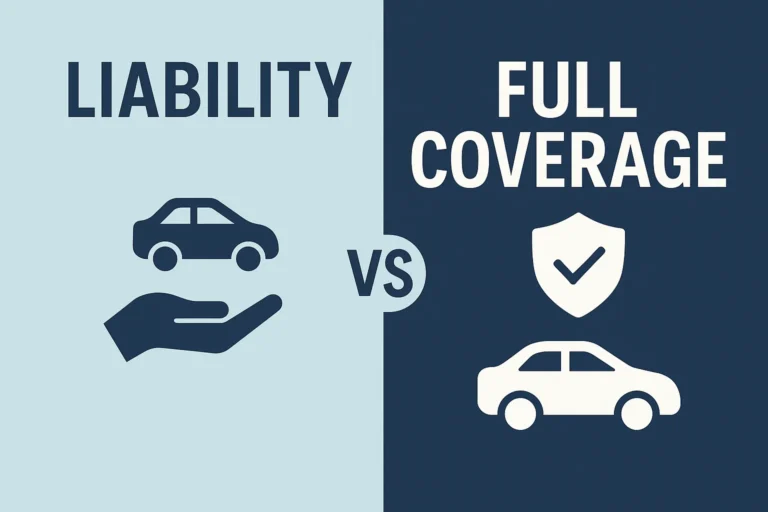Whether you’re a freshman leaving home for the first time or a graduate student relocating to a new city, moving into rented campus housing can be both exciting and overwhelming. One important—but often overlooked—aspect is making sure your personal belongings and liabilities are properly insured.
This guide is tailored specifically for students and parents who want a clear, jargon-free understanding of how insurance works when renting on or near a college campus. We’ll cover the basic concepts, list essential coverage types, expose common mistakes, and help you make informed decisions through comparisons and FAQs.
Understanding Campus Housing Insurance: The Basics
Campus housing insurance refers to policies that protect a student’s belongings and liability when living in rented accommodations either on-campus or in private student housing near a university. While many believe that a landlord’s insurance covers all risks, that’s a dangerous misconception—your personal belongings and any liability you cause are your responsibility.
There are typically two insurance types relevant to students: renters insurance and liability coverage. Renters insurance covers your personal property (laptop, phone, clothes, etc.) in the event of theft, fire, or water damage. Liability insurance covers you if you accidentally cause damage to the rental unit or injure someone on the premises.
Some universities offer optional insurance plans for dorms, but these are often limited. In off-campus rentals, students are almost always expected to obtain their own policy. The good news is that these plans are often affordable, costing as little as $10 to $20 per month depending on the coverage amount and location.
Many student-focused insurance providers also bundle identity theft protection, temporary housing assistance, and electronics coverage into their plans. Before signing a lease or moving in, it’s essential to evaluate your risks and explore what kind of policy best fits your situation.
Top Things to Look for in Student Renters Insurance
1. Personal Property Coverage
Ensure the policy covers the full replacement cost of your essential belongings. Items like laptops, gaming consoles, books, and bicycles should be listed. Look for “replacement cost” coverage instead of “actual cash value,” as the latter depreciates over time.
2. Liability Protection
This coverage kicks in if you or a guest cause damage to the property or another person. Liability coverage is critical in shared housing situations, where a small accident can become an expensive problem.
3. Loss of Use Coverage
If your rented unit becomes uninhabitable due to fire or flooding, this benefit helps cover hotel costs or alternative accommodations during repairs. This feature is especially useful during exam periods or tight academic deadlines.
4. Identity Theft Protection
Many policies now include protection against fraudulent use of your personal information. Given the number of online systems students use, this is a valuable add-on.
5. Deductible Amount
Choose a deductible you can reasonably afford. A lower deductible means higher premiums but easier recovery in case of a claim. Some companies offer deductibles as low as $100 for students.
6. Global Coverage
Planning to study abroad for a semester? Some policies cover belongings even outside your home country. This is especially beneficial for exchange students.
7. Roommate Coverage Limitations
Most student renters insurance only covers the policyholder. Make sure each roommate has their own policy unless your provider allows listing multiple insureds.
8. Bundling with Car Insurance
If you drive, bundling auto and renters insurance can reduce your total premium by 10-25%. Many insurers like State Farm or Progressive offer student discounts and bundles.
9. Policy Duration Flexibility
Look for short-term or semester-based plans if you’ll be moving out during summer. Avoid being locked into 12-month contracts you don’t need.
10. Customer Support and Mobile Access
Choose insurers that provide 24/7 claims support and offer apps for managing policies, submitting claims, or updating contact information on the go.
Common Mistakes and How to Avoid Them
Assuming Parent’s Insurance Applies
Many students mistakenly think they’re covered under their parent’s homeowners insurance. While this may apply for on-campus dorms, it usually doesn’t extend to private rentals.
Underestimating Belongings’ Value
Not conducting an inventory leads to insufficient coverage. Use a spreadsheet or an app to track items and keep receipts or photos as proof of ownership.
Skipping Liability Coverage
Accidents happen, and liability claims can reach thousands of dollars. Never opt out of this coverage—even if you’re on a budget.
Choosing the Cheapest Plan Blindly
Low-cost plans may exclude crucial protection like theft or water damage. Always read the fine print before buying.
Not Informing the Landlord
Some leases require proof of renters insurance. Failing to provide this can violate your lease terms or result in additional fees.
Comparison Tables for Better Decisions
| Provider | Monthly Cost | Personal Property | Liability | Loss of Use |
|---|---|---|---|---|
| Lemonade | $12 | $10,000 | $100,000 | Yes |
| Allstate | $15 | $15,000 | $100,000 | Yes |
| State Farm | $17 | $20,000 | $100,000 | Yes |
| Feature | Included in All Policies? | Recommended for Students? |
|---|---|---|
| Identity Theft Protection | No | Yes |
| Pet Damage Coverage | Optional | If applicable |
| Off-Campus Theft | Yes | Yes |
| Abroad Coverage | Limited | Yes, for exchange programs |
Frequently Asked Questions (FAQ)
Do I need insurance if I live in a university dorm?
Yes, especially if your school doesn’t offer a comprehensive plan. Most university-provided coverage is limited and excludes personal belongings.
Can I share renters insurance with my roommate?
Generally, no. Policies typically cover only the person named on the policy. Encourage each roommate to get their own.
What’s the average coverage amount for a student?
Most students opt for $10,000–$20,000 in personal property coverage and at least $100,000 in liability. Adjust based on the value of your belongings.
Conclusion: Protect Your Future Now
Getting insurance for rented campus housing might not be the most thrilling part of your college checklist—but it’s undoubtedly one of the smartest. From protecting your laptop to shielding yourself from liability, a good policy offers peace of mind while you focus on academics and life experiences.
Start by listing your valuables, comparing policies, and reading the fine print. You can explore more about renters insurance benefits for college students or check out our guide on choosing the best affordable insurance provider.
Ready to get protected? Visit your preferred insurance provider or use student comparison tools like PolicyGenius or Insurance.com to find the best match for your needs today.






